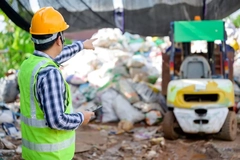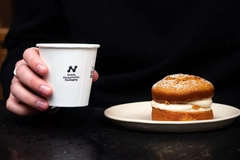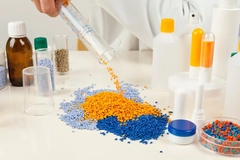Henkel scales mass balance sourcing for renewables in Bref toilet cleaning line

Henkel is replacing fossil-based materials with renewable alternatives in the cleaning formula and packaging of its Bref toilet rim blocks. The move covers most Bref products sold in Europe and supports the company’s long-term net-zero goals.
Henkel and its suppliers swap a portion of fossil raw materials for renewable feedstocks at the start of the production process by applying a mass balance approach. A certified system then allocates the renewable content to specific products for traceability and accountability.
“Switching to renewable raw materials in both ingredients and packaging is a key lever to reduce the upstream carbon footprint of our products,” says Marjon Stamsnijder, head of sustainability at Henkel Consumer Brands. “It brings us closer to our 2045 net-zero target.”
New surfactant for cleaning formula
Henkel has teamed up with surfactant producer Moeve to roll out a new ingredient derived from 68% renewable raw materials.
 Henkel is accelerating renewable material usage for its toilet rim block formula and packaging.The company already uses a similar approach in its long-standing partnership with BASF, replacing fossil inputs in around 110,000 tons of ingredients annually. Brands such as Persil and Schauma are said to benefit from this shift, contributing to lower product-level emissions across the portfolio.
Henkel is accelerating renewable material usage for its toilet rim block formula and packaging.The company already uses a similar approach in its long-standing partnership with BASF, replacing fossil inputs in around 110,000 tons of ingredients annually. Brands such as Persil and Schauma are said to benefit from this shift, contributing to lower product-level emissions across the portfolio.
Rim block cages for circularity
In addition to formula changes, Henkel is revamping the packaging for Bref. The plastic cages use 30% recycled content, and the company is investing in renewable alternatives for the remaining virgin plastic.
By switching virgin plastic to bio-based sources through the mass balance system, the company expects to save more than 10,000 tons of carbon emissions annually, based on previous year’s sales.
Henkel says that integrating renewable inputs into mainstream household products reduces emissions and signals a scalable path toward more circular packaging systems.










